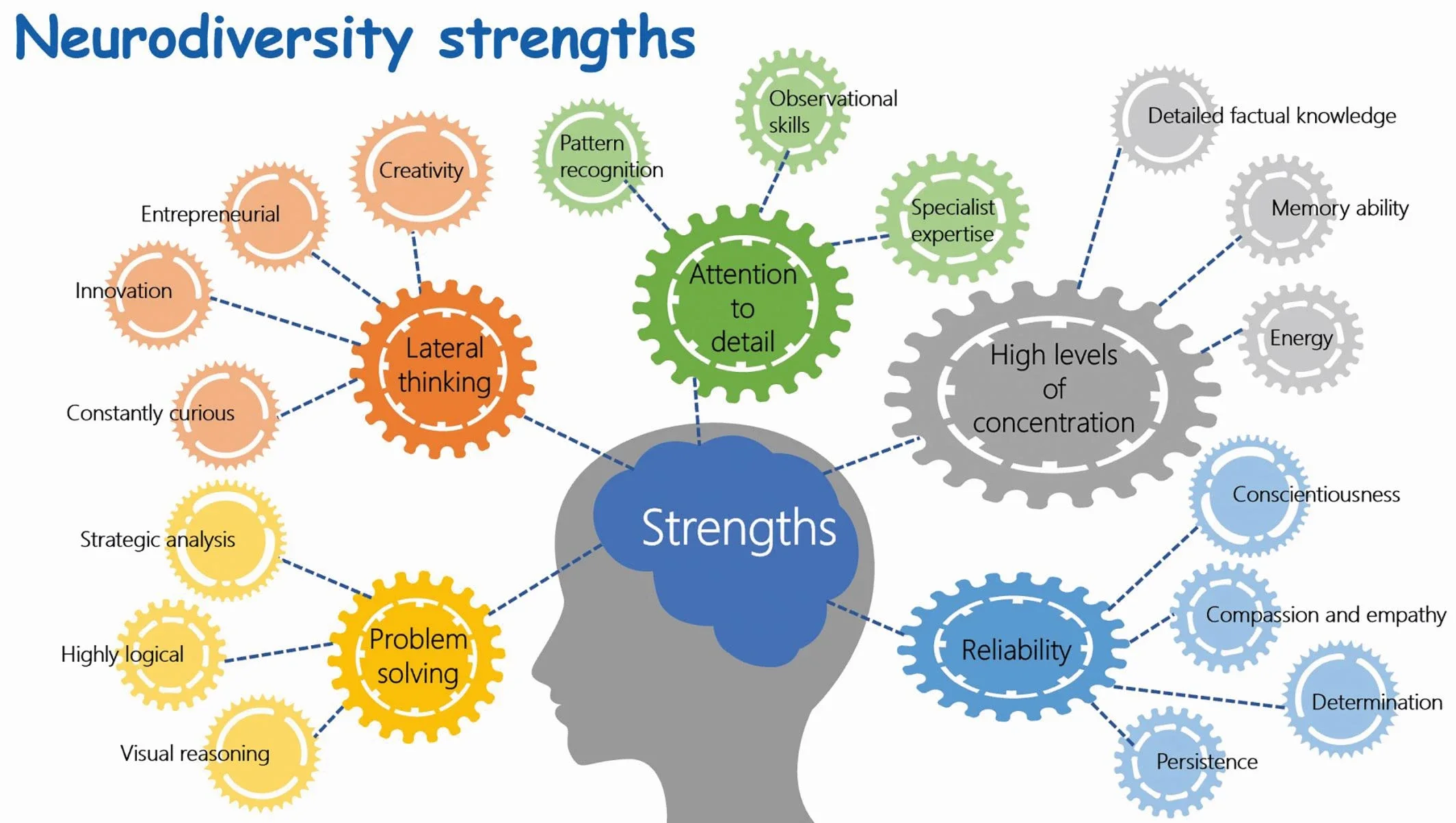The Hidden Strengths of Neurodivergent Minds
So I finished last week's post talking about needing to find a balance between seeing neurodivergence as a superpower or as a struggle. You may have seen media coverage painting it as one or the other. But it's not as binary as that.
Sometimes you might feel like you are struggling, as everyone can at times, because let's be honest, life can be tough. Especially when you have a neurodivergent mind living in a system that wasn't made for neurodivergent minds. And systemic issues are a big thing to think about! Today though I want to focus on the strengths that can come with being neurodivergent, ones that are maybe less talked about.
Instead of ADHD's 'scattered mind', think of the ability to hyperfocus for hours on something meaningful. Instead of dyslexia's 'trouble with words', think of the creative thinking and often awesome visual skills. And autism's 'intense special interests' can become deep expertise, sparking innovation that changes industries. (Neurodivergence and psychology are definitely special interests of mine... not sure about changing industries just yet!) You might recognise yourself in these examples, but you also might not - they're pretty simple, probably stereotypical. That's ok, that means you have different strengths.
We want to figure out these hidden strengths and recognise them for the assets they are. You can think about using them to help manage your own individual challenges, using them in your work, or just for the self-esteen boost that can come from realising you do have some bloody awesome strengths actually.
It's a major frustration of mine that the diagnosis process, for those that have been through it, doesn't really give you a sense of what your autism, ADHD, dyslexia etc looks like, and especially what your strengths are. (I'll share something in the coming weeks about creating your own unique profile).
So how do you know what your strengths are?
You could ask your friends or family what your strengths are... this is one of those general recommendations in strength based work. And maybe your friends and family know you well and can give a fair assessment of your strengths. Sometimes it can be difficult with friends and family, maybe they don't really agree with your diagnosis/identification as neurodivergent, maybe they focus more on what the find challenging... so think about your relationships with them before asking.
You could try making a 'strengths journal' - each week (or when you notice it/remember) note down one way your brain helped you do something differently. Or when you notice people saying about something that they find difficult but it comes really easy to you or you enjoy it and lose yourself in flow...maybe that's a strength of yours.
Doing this over time you can get a sense of your own unique strengths.
What if you're likely to start this with the best intentions and then in a few days it will be like it never existed... then maybe another way is to look at common strengths and see if you recognise which ones you have. I'll share a few common strengths here, or you could find a longer list (google/ask chatgpt if you want) and see what feels like it fits/resonates/sounds like you.
Common strengths:
Creative problem-solving (spotting solutions others overlook, thinking outside the box, seeing things differently, recognising patterns...)
Honesty and authenticity (being clear and direct, challenging things that don't make sense, deeper and more meaningful conversations rather than small talk...)
Resilience (navigating a world not built for you definitely build grit - Yay! But also it can be bloody tiring and lead to burnout...)
Passion and focus (when something matters to you, it really matters - hey hyperfocus, going down the rabbit hole and indepth knowledge).
Even if none of this feels like it fits for your personal strengths, you absolutely do have strengths that help make you the awesome human that you are.
I'd love to know what your strengths are.



